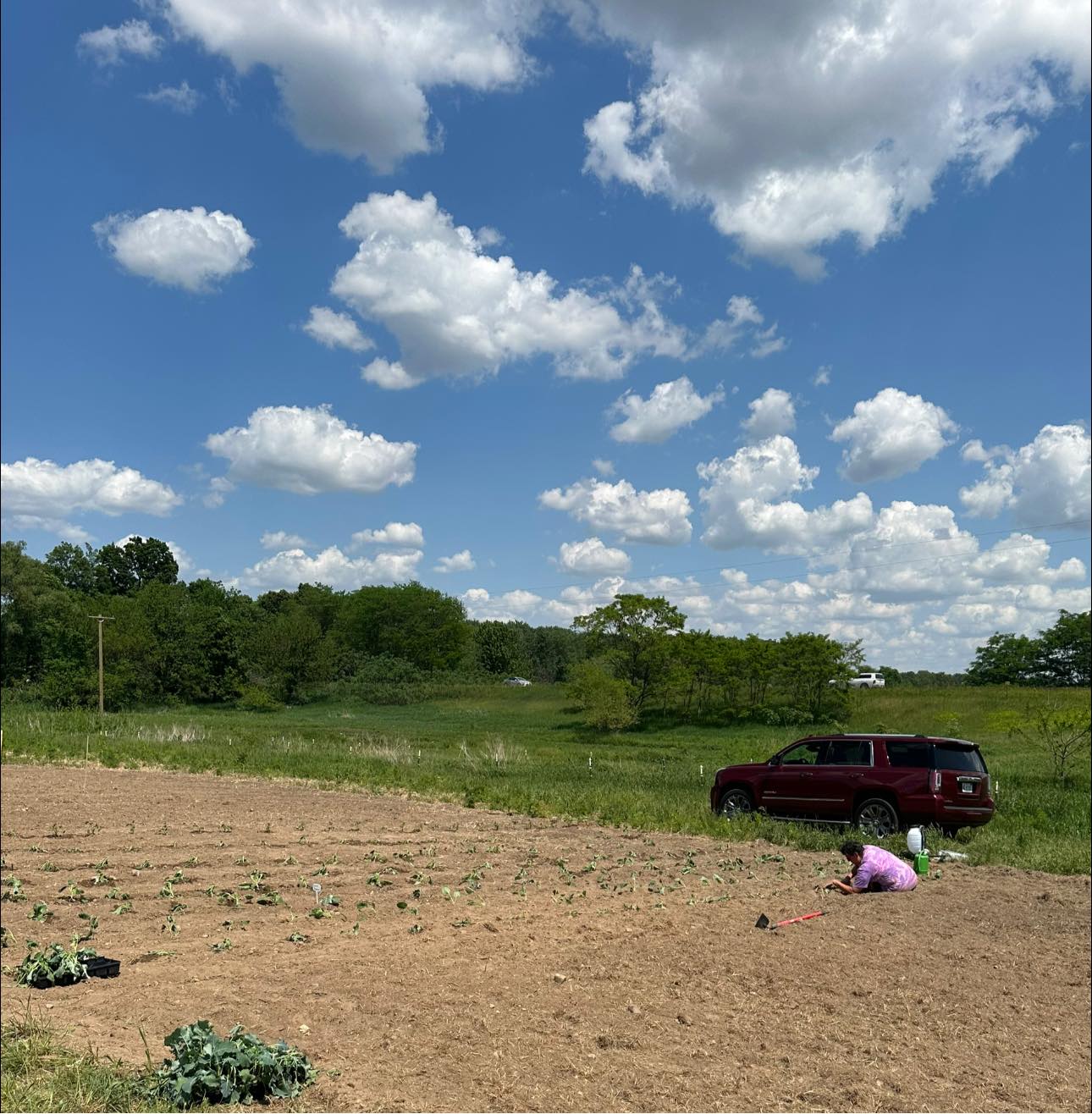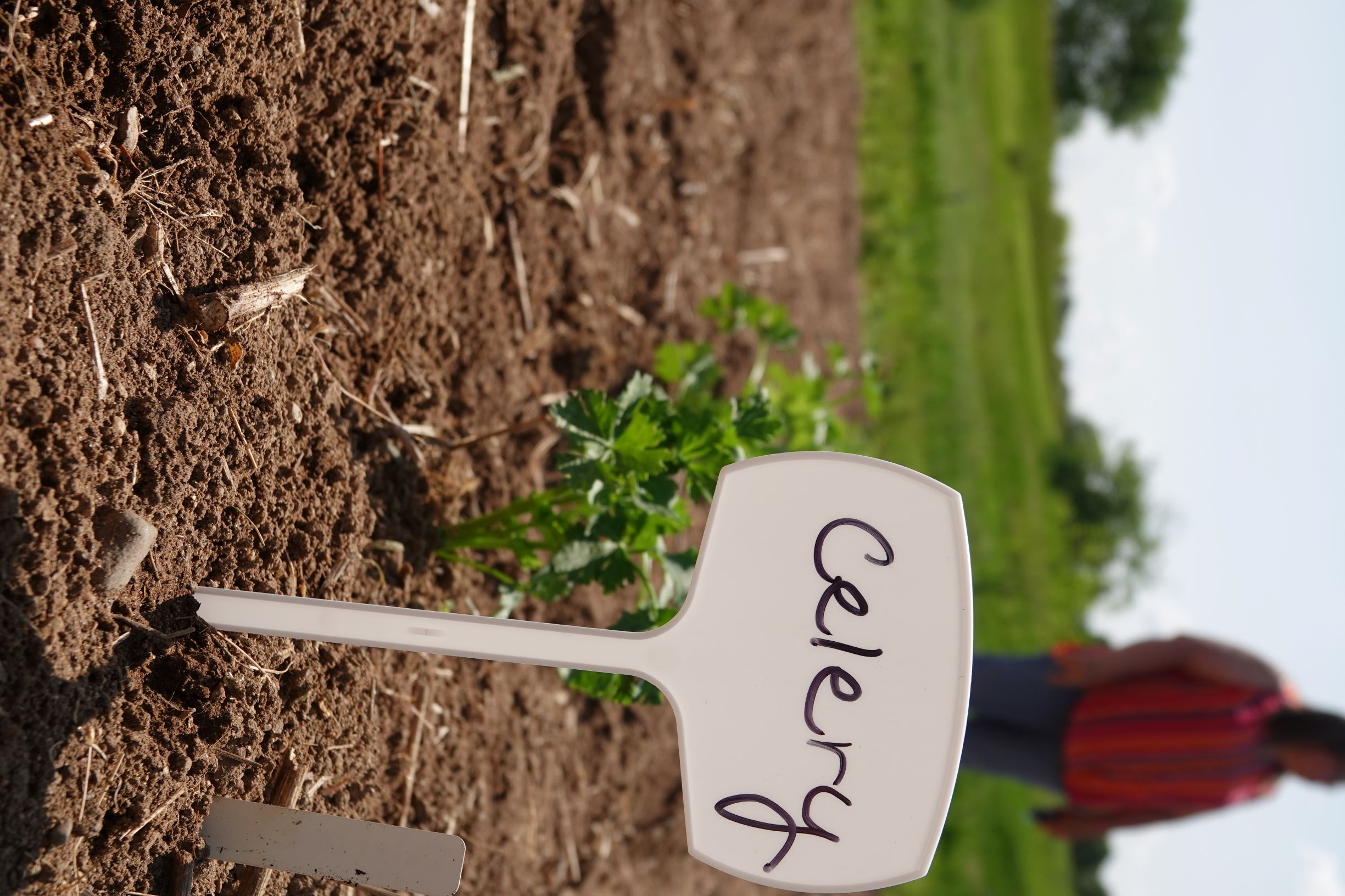Unseasonably Dry Weather Conditions Created Additional Challenges
Photos courtesy of Will Willavize
With the U.S. Drought Monitor reporting that much of Michigan has been under drought conditions in 2023, it is no surprise that the Pine Creek Farms has needed extra special care.
Previously called “The M-66 Property” or “The Farm,” the name “Pine Creek Farms” was selected to describe the 22-acre parcel of land off M-66, north of downtown Athens, Michigan, that was acquired by NHBP in 2022. Tribal Member Dana Young submitted the name “Pine Creek Farms,” which the NHBP Elders Committee chose during its “Name the Farm” contest in spring 2023.

To prepare for the planting season, the NHBP Culture Department was busy planning and organizing what would be grown on Pine Creek Farms in earnest, despite the dry weather conditions that had hit the area long before anything was put in the ground.
“We received a generous donation of Sema {Tobacco} seedlings from a generous Tribal Member from the Bush family,” said NHBP Food Sovereignty Coordinator and Tribal Member Nickole Keith. “The Tribal Member lives out of state and met me halfway to exchange the plants. Our Medicine Garden bed is complete. And now our first plants for the farm are appropriately Sema.”
On May 10, NHBP Food Sovereignty staff transplanted the donated Sema plants at the Pine Creek Farms to prepare for planting day on May 31. Sema helps deter Seksi {white-tailed deer}. Sema is the Medicine of the Eastern direction.
Throughout May and June, NHBP Food Sovereignty and Culture Department staff picked asparagus planted by the previous property owners. As asparagus plants can last up to 20 years, NHBP staff hopes to tame these rows and rows of asparagus and reseed them for future harvests.

Throughout May and June, NHBP Food Sovereignty and Culture Department staff picked asparagus planted by the previous property owners. As asparagus plants can last up to 20 years, NHBP staff hopes to tame these rows and rows of asparagus and reseed them for future harvests.
On Wednesday, May 31, more than a dozen NHBP Tribal Members, Elders, Team Members and Tribal Council Members planted dozens of plants spanning over a quarter of an acre during an unseasonably hot day.
NHBP included the ever-important 3 Sisters –glass corn, Potawatomi pole beans and Seminole Squash – and the Indigenous seeds for Potawatomi Watermelon and Hochunk Squash, in the first planting at Pine Creek Farms. The crew also planted a wide variety of produce, including:
cauliflower
Brussels sprouts
broccoli
collard greens
cabbage
okra
3-4 types of tomatoes
jalapeños
radishes
carrots
yellow onions
sugar baby watermelons and
celery.
The multiple raised garden beds have been filled with tomatoes, Wishpemishkos {Sweetgrass}, cilantro, basil and thyme.
Future plans for the produce include distribution to Tribal Members during the Wednesday Lunch and Learns at the Pine Creek Community Center and also to harvest the seeds for future use, including the Seed Bank.
“The cabbage was eaten by the rabbits within a few weeks,” said Keith, noting that the wildlife can pose a threat to the garden. However, wildlife isn’t the only issue NHBP faces.
“Our main concern is keeping everything watered during this hot and dry weather,” said Keith.
To help address this concern, Tribal Elders Craig Chivis and Wanda Norman have been crucial to the farm’s ongoing success, bringing water from their home directly to Pine Creek Farms.
Electricity installation remains on the horizon, which would allow for a well, reducing the vast need for hauling in water, but “we always need help with weeding,” said Keith. “These plants will need continuous care.”
Tribal Members and Team Members who would like to assist in weeding or plant maintenance can email or text Cultural Resource Worker Dana Young at 269.360.0432 or Dana.Young@nhbp-nsn.gov. This will ensure that NHBP knows who is onsite at Pine Creek Farms.




0 Comments